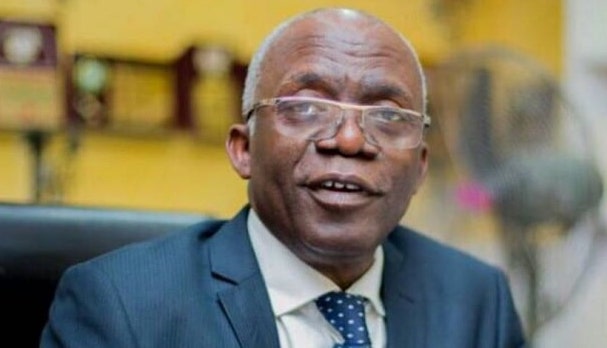Politics
Falana clarifies FCT status amidst confusion on declaration of president-elect

Human rights lawyer, Femi Falana (SAN), has revealed that votes cast in all parts of Nigeria are equal.
Falana, who spoke on a Channels Television’s programme, Sunday Politics, added that the Federal Capital Territory (FCT) has been interpreted to be the country’s 37th state.
He was addressing Section 134 of the 1999 Constitution, which has become a contentious topic in the wake of the 2023 presidential election.
Falana, however, said he would not make a firm statement on the matter at this time because it has developed into a serious legal case that is currently pending in court.
He noted that court rulings on Abuja’s status already exist.
The lawyer said: “I had expressed an opinion on section 134 of the Constitution on the 23rd of January this year – that is about a month before the presidential election. On that occasion, I expressed a legal opinion and that is why I was very hesitant to join the bandwagon when lawyers started to give political interpretations of that section.
“I did state that there is no electoral college in Nigeria and therefore the votes cast or recorded in any part of the country are equal. Section 134 of the Constitution specifically requires a winner of a presidential election to meet certain requirements. The first one is to score the majority of lawful votes and the second is territorial spread, a two-thirds majority of the states and the Federal Capital Territory.
“And since the FCT has been interpreted to be a 37th state in Nigeria for the purpose of the constitution I didn’t see any controversy at the material time and that was when I expressed my opinion.
READ ALSO: Falana declares support for live telecast of presidential election tribunal proceedings
“But now that it has become a serious legal issue and the matter is now pending in court, I am very reluctant to speak definitively on the section because there are decisions of the court on the status of Abuja.”
The 1999 Constitution has stipulated that the winner of the country’s presidential election must receive at least one-quarter of the votes cast in at least two-thirds of the federation’s states and the FCT.
However, there were concerns about how the Independent National Electoral Commission (INEC) interpreted that section of the Constitution when Bola Tinubu of the All Progressives Congress (APC), who was declared the winner of the February 25 election, failed to receive 25 percent of the vote in the FCT.
Both the Peoples Democratic Party (PDP) candidate, Atiku Abubakar, and Peter Obi of the Labour Party have filed petitions at the Presidential Election Tribunal challenging Tinubu’s declaration as the winner of the election.
Atiku and Obi finished second and third respectively in the election.
Join the conversation
Support Ripples Nigeria, hold up solutions journalism
Balanced, fearless journalism driven by data comes at huge financial costs.
As a media platform, we hold leadership accountable and will not trade the right to press freedom and free speech for a piece of cake.
If you like what we do, and are ready to uphold solutions journalism, kindly donate to the Ripples Nigeria cause.
Your support would help to ensure that citizens and institutions continue to have free access to credible and reliable information for societal development.






















